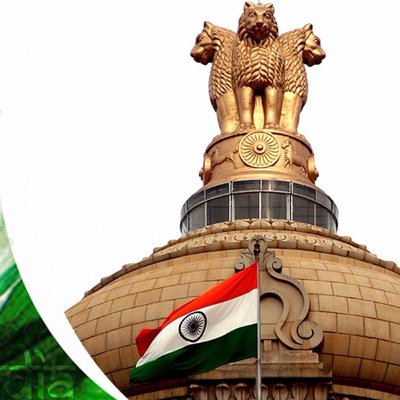The Ministry of Information and Broadcasting published the new guidelines for central media accreditation has been included with 10 disqualification clauses. The clauses dilute the basic definition of journalism. It leaves journalists’ Press Information Bureau status in a volatile position where the centre is free to interpret according to its subjective views.
Accreditation is a process that gives journalists access to government offices and helps in getting information from the opaque bureaucratic system in India. Any reporter who was presented or covered the gatherings over several years was an ‘accredited’ journalist. The years of experience spent observing such gatherings would establish that these gatherings are diverse and bring a lot of perspective to the table.

The murkiness of the laws doesn’t end there. According to a report in The Wire, the guidelines put out by the Ministry leave it to the discretion of government officials to interpret what is defamatory or prejudicial to the sovereignty or integrity of India. This will be decided simultaneously with whether a journalist’s accreditation should be suspended or withdrawn based on certain interpretations.
The jargon which further makes it easier for the government to target any media organisation is the abstract law which says “acts in a manner which is prejudicial to the sovereignty and integrity of India, the security of the State, friendly relations with foreign States, public order, decency or morality of in relation to contempt of court, defamation or incitement to an offence.”
There are multiple defamation cases filed on the most frivolous accounts and now that can be considered to further thwart the media from getting access to government offices.
Seema Chisti in her article for The Quint explains why access to the government office is critical for a thriving democracy. “Journalists here are meant to serve as proxies of the people at large, in the hope that they will be able to ask questions that would ensure that those who claim to represent them and have been vested with so much power will always be alert and anxious about being answerable,” she writes. This situation is exacerbated by the remaining guidelines associated with the suspension or withdrawal of the accreditation of an accredited journalist. The guidelines also provide that accreditation would be liable to be suspended or withdrawn if a journalist used it for “non-journalistic activities” or if he or she “has been charged with a serious cognizable offence.”

According to a report in The Indian Express, the guidelines further prohibits a journalist who falls into the category fallen above from mentioning “accredited to the Government of India” on social media, visiting cards or letterheads.
One will not be able to find these clauses in the guidelines issued in 2013. In fact, the guidelines also provide the “procedure for grant of accreditation” and the “functions of Principal DG, PIB” in the matter.
These guidelines state that “the Government of India shall constitute a Committee called the Central Media Accreditation Committee, chaired by the Principal DG, PIB and comprising of up to 25 members nomination by the Government of India to discharge the functions laid down under these guidelines.”

The CMAC would function for a period of two years from the date of its first meeting and shall meet once in a quarter or more frequently, if necessary.
The decisions of the CMAC, the guidelines said, “shall be taken on the basis of the majority of the members present and any dissent may be duly recorded”.
Also Checkout: Throwback: Know about the first Elections held In Uttar Pradesh under British Rule
















